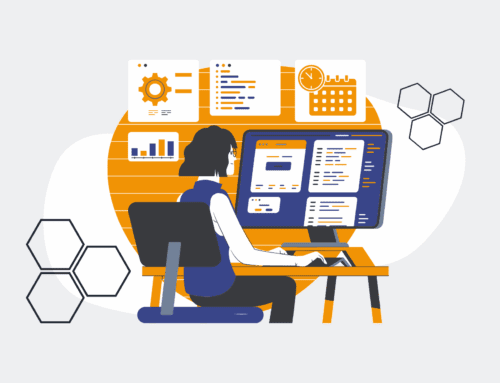From Resume Dump to Talent Pool: How AI Organizes Candidate Data
For decades, the journey of a resume after submission has often felt like an opaque trip into a digital black hole. Thousands of promising applications pour into inboxes and applicant tracking systems, yet many remain unprocessed, unanalyzed, or simply lost in a sea of unstructured data. Recruiters and HR professionals spend countless hours manually sifting, categorizing, and attempting to extract meaningful insights from mountains of documents, often leading to missed opportunities, delayed hiring, and significant operational inefficiencies. This isn’t just a time sink; it’s a fundamental barrier to building a truly effective talent strategy.
The Resume Black Hole: A Modern Recruitment Conundrum
The sheer volume of candidate information presents a formidable challenge. Beyond resumes, there are cover letters, portfolios, assessment results, and interview notes, each containing crucial pieces of the puzzle. Without a robust system to intelligently process and organize this influx, businesses are effectively operating blind. Critical insights – such as a candidate’s latent skills, their cultural fit, or their long-term potential – remain buried, making it difficult to move beyond surface-level keyword matching to truly understand the value a person can bring to an organization.
Beyond Keywords: Understanding the True Value of Candidate Data
Traditional methods for handling candidate data are inherently reactive and limited. They often rely on manual data entry, prone to human error, or simplistic keyword searches that miss the nuanced capabilities and experiences a candidate possesses. This leads to a fragmented view, where a candidate is reduced to a set of bullet points rather than recognized as a holistic individual with diverse talents. The consequence? A talent acquisition process that’s slow, expensive, and frequently overlooks qualified individuals who don’t perfectly match a narrow search query. Your talent “database” becomes less a strategic asset and more a disorganized repository, hindering your ability to make agile, data-driven hiring decisions.
AI as the Architect of Your Talent Ecosystem
The paradigm is shifting. Artificial Intelligence, when strategically implemented, is transforming the way businesses handle candidate data, moving them from reactive resume processing to proactive talent ecosystem management. AI-powered solutions can ingest, parse, and analyze vast quantities of unstructured data from resumes, LinkedIn profiles, and other sources, extracting key information with unparalleled speed and accuracy. This goes far beyond simple keyword identification; AI can infer skills from experience descriptions, identify career trajectories, assess cultural indicators, and even flag potential biases in original documents.
Imagine a system that automatically categorizes candidates by a rich array of attributes, cross-references their skills against job requirements, and identifies gaps or overlaps in team capabilities. This is what AI brings to the table: an ability to transform raw, chaotic data into a structured, searchable, and intelligent talent pool. It allows for the creation of dynamic candidate profiles that evolve with new information, offering a 360-degree view of each applicant. This intelligent organization reduces the administrative burden on HR teams, freeing them to focus on high-value tasks like candidate engagement and strategic workforce planning.
Building a Dynamic Talent Pool, Not Just a Database
With AI organizing candidate data, your talent pool becomes a living, breathing entity. It’s no longer just a static collection of past applicants but a dynamic resource that can be leveraged for current and future needs. AI enables sophisticated matching algorithms that connect the right candidates with the right roles, often uncovering matches that human reviewers might miss. It facilitates personalized communication, allowing for targeted outreach based on a candidate’s specific skills, interests, and career stage.
Furthermore, AI can identify trends within your candidate data, revealing insights into sourcing effectiveness, skill shortages, and even the efficacy of your job descriptions. This proactive approach not only significantly reduces time-to-hire but also dramatically improves the quality of hire, ensuring you’re building a workforce that truly aligns with your strategic objectives. The ability to quickly identify, engage, and nurture talent within a meticulously organized pool is a competitive advantage in today’s tight labor market.
Strategic Implementation: 4Spot Consulting’s Approach to AI-Powered HR
At 4Spot Consulting, we understand that implementing AI isn’t just about adopting new technology; it’s about strategically re-engineering your operational processes. Our approach, guided by frameworks like OpsMap™ and OpsBuild™, focuses on integrating AI to solve your specific HR and recruiting challenges, turning a resume dump into a meticulously organized, actionable talent pool. We leverage tools like Make.com to connect disparate systems, ensuring seamless data flow between your ATS, CRM (like Keap), and other HR technologies. This eliminates manual bottlenecks, reduces human error, and ensures your high-value employees are freed from low-value, repetitive tasks.
We’ve seen firsthand how a well-architected AI solution can dramatically impact efficiency. For instance, we helped an HR tech client save over 150 hours per month by automating their resume intake and parsing process using AI enrichment, then syncing this structured data to their CRM. This is about more than just automation; it’s about creating a single source of truth for your candidate data, making it organized, intelligent, and readily accessible. The result is a more agile, cost-effective, and ultimately more human-centric talent acquisition strategy that supports scalable growth.
The transformation from a chaotic collection of resumes to a strategically organized talent pool is not merely an upgrade; it’s an imperative for businesses aiming for sustainable growth and competitive advantage. By embracing AI to intelligently manage and enrich candidate data, organizations can unlock unprecedented efficiencies, make superior hiring decisions, and build the resilient, high-performing teams of tomorrow.
If you would like to read more, we recommend this article: The Future of AI in Business: A Comprehensive Guide to Strategic Implementation and Ethical Governance







